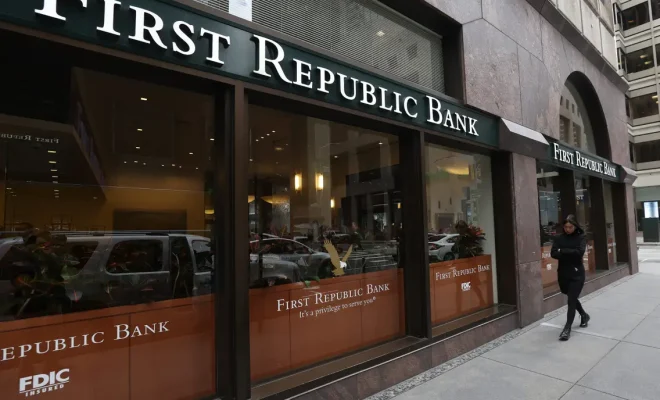What the Failure of First Republic Bank Means for You

The recent collapse of First Republic Bank, once a seemingly stable and reputable financial institution, has sent shockwaves through the industry and the lives of its clients. For everyday investors, this event brings up questions about what it means for them personally. This article will examine the implications of First Republic Bank’s failure, and how it will affect current and future financial decisions.
Understanding the Collapse
For years, First Republic Bank enjoyed a strong reputation as an institution with a loyal customer base and a steady stream of revenue. However, in recent times, the bank faced fierce competition from digital platforms, high-management turnover and inability to adopt new technologies rapidly. These difficulties contributed to the eventual downturn in its business performance.
For many customers, this comes as a surprise, as they were used to relying on First Republic’s services for their personal financial needs. Now that the bank has failed, individuals are left feeling uncertain about their financial future.
Implications for Consumers
The collapse of First Republic Bank has various consequences for its customers and other individuals investing in similar banks.
1. Loss of Trust in Financial Institutions: The unexpected downfall of such a reputable bank causes concern among investors about the reliability of other financial institutions. Consumers may begin questioning whether their chosen banks also face similar issues or are at risk.
2. Reviewing Investments: In light of the recent events, individuals may start reevaluating their investment portfolios and considering diversification to protect themselves against such crises. This might entail seeking alternative investments or shifting assets across other banks.
3. Inevitable Shift to Digital Banking: With traditional banks facing stiff competition from digital platforms like neobanks or fintech companies, First Republic Bank’s failure may push more customers to adopt these alternatives for better security and convenience.
Protecting Your Financial Future
In light of the current situation, there are several ways individuals can safeguard their financial interests:
1. Research Financial Institutions: Before opening an account or investing, it is essential to research the financial institutions thoroughly. Look at their historical performance, growth
strategies and risks associated with investing in these institutions.
2. Diversify Investments: Diversification is a key aspect of building a robust financial portfolio. By spreading investments across various asset classes and sectors, individuals can minimize the potential losses associated with a single company or industry.
3. Stay Informed: Keep up-to-date with financial news and trends to make informed investment decisions. Being informed about the market scenario arms investors with the foresight needed to adjust their portfolios as required.
In conclusion, the failure of First Republic Bank serves as an essential reminder to remain vigilant and cautious about our financial decisions. By taking proactive steps in understanding the financial landscape and managing our investments wisely, we can protect ourselves from unexpected events like these and ensure a stable financial future.






